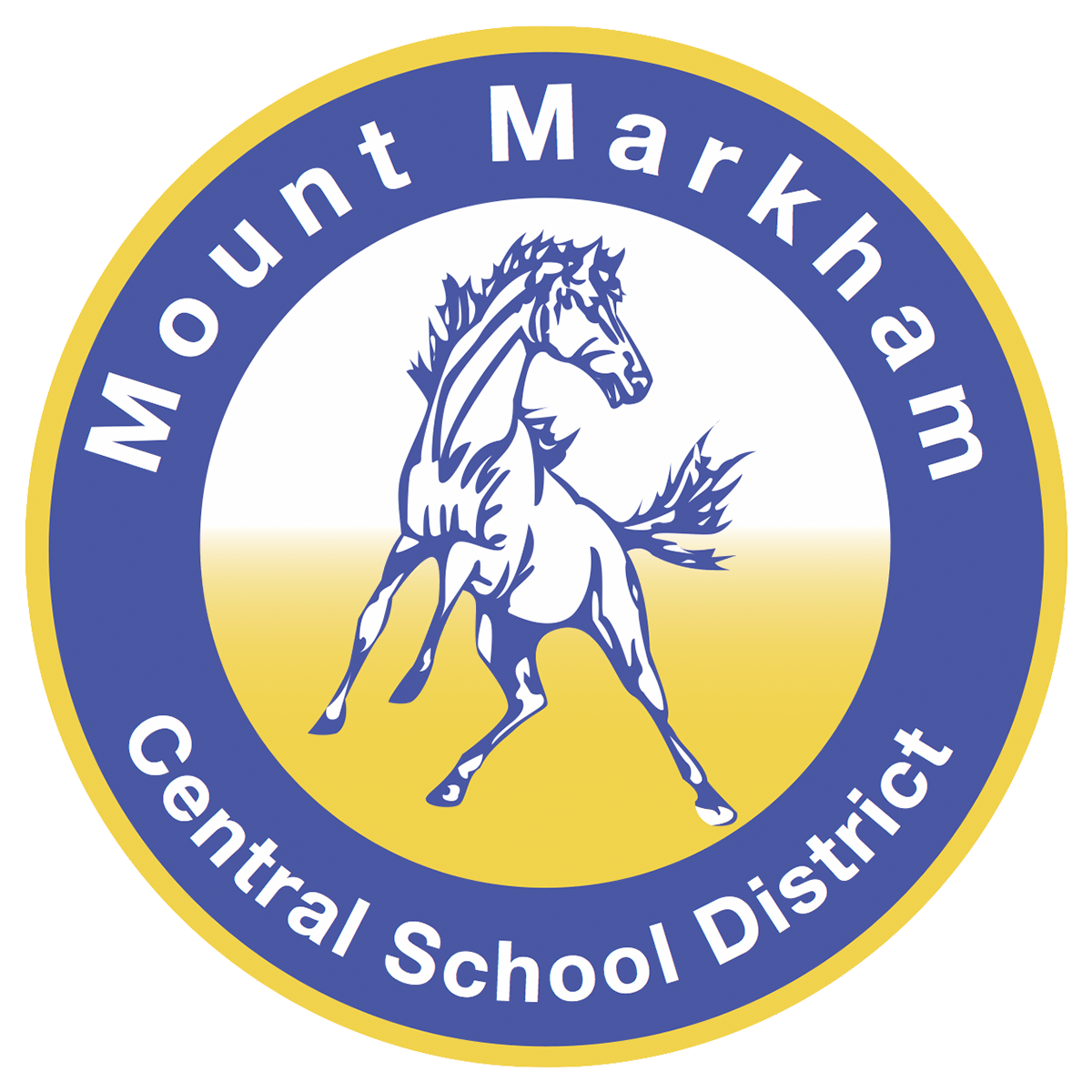Over the past year, Mount Markham High School teachers Sarah Robinson and Alaina Brower have explored immersive technology and designed ways to use the technology to enhance their students’ learning experience.
Immersive learning technologies allow students to explore and learn in a digital environment while interacting with virtual objects and environments.
“We are thrilled to be implementing technology that enhances experiential learning,” Principal Victor Zampetti said. “Our students are seeing places that have traditionally been impossible to visit as a high school student due to costs, safety, and time constraints.”
 The technologies being used in instruction utilize Augmented Reality (AR) and Virtual Reality (VR). Using AR, students can manipulate 3D digital objects that appear to be in the classroom with them, such as a human heart or a dinosaur. Using VR, students are fully immersed in a digital world, such as the International Space Station or a fully functioning chemistry lab.
The technologies being used in instruction utilize Augmented Reality (AR) and Virtual Reality (VR). Using AR, students can manipulate 3D digital objects that appear to be in the classroom with them, such as a human heart or a dinosaur. Using VR, students are fully immersed in a digital world, such as the International Space Station or a fully functioning chemistry lab.
Students can also take virtual field trips to places like Mars, ancient Egyptian ruins or the courthouse from To Kill a Mockingbird. The purpose of this technology is to supplement and enhance instruction where it fits into the curriculum, not to digitize instruction completely.
 “Each headset has software that allows me [the teacher] to control the activities that I want to share with the students,” Sarah Robinson, a science teacher at Mount Markham High School said. “Despite having hundreds of activities available, I focus the class by giving students access to one or two activities during a class. During some of our lessons, the students work independently as they complete a dissection lab. In other lessons, we are learning together in the virtual environment. The students answer questions and make observations in the same way we would during a traditional field trip.”
“Each headset has software that allows me [the teacher] to control the activities that I want to share with the students,” Sarah Robinson, a science teacher at Mount Markham High School said. “Despite having hundreds of activities available, I focus the class by giving students access to one or two activities during a class. During some of our lessons, the students work independently as they complete a dissection lab. In other lessons, we are learning together in the virtual environment. The students answer questions and make observations in the same way we would during a traditional field trip.”
So far, Robinson’s Living Environment class has conducted a virtual lab on enzyme functionality under different environmental conditions and has taken virtual field trips into animal and plant cells. The astronomy class has utilized the devices frequently, traveling to the Martian surface during its planet unit, where students could interact with various Martian rovers and landers. The class has also visited the International Space Station and a rocket launch.
 In the future, Robinson plans to use the technology in her Earth Science class to visit glaciers and to go into active volcanoes. The chemistry classes will use immersive technology to conduct lab experiments that otherwise would be too dangerous, for instance, conducting flame tests.
In the future, Robinson plans to use the technology in her Earth Science class to visit glaciers and to go into active volcanoes. The chemistry classes will use immersive technology to conduct lab experiments that otherwise would be too dangerous, for instance, conducting flame tests.
“Immersive technologies are going to be a game-changer for the sciences, which Mount Markham recognizes,” Robinson said. “Science can be so abstract at times. I can do all the gestures in the world to demonstrate a convergent plate boundary, but with AR, we can have a 3D representation of it on the desk in front of us and watch the various processes involved, like the creation of a trench. Using VR, students can travel the world to experience things like the Midnight Sun in Iceland, or visit the Perseverance rover on Mars using real 360 images taken by the rover and compiled by NASA.”
Robinson has already seen results.
“The students were so engaged when we looked at cells, and there’s been an improvement in retention as shown through test scores,” Robinson said.
 Mount Markham CSD is one of the first districts in our region to spearhead this type of initiative, but schools throughout the country have started to explore AR and VR technology to enhance instruction. These technologies have been deemed educational trends for the 2023-2024 school year by international educational technology associations.
Mount Markham CSD is one of the first districts in our region to spearhead this type of initiative, but schools throughout the country have started to explore AR and VR technology to enhance instruction. These technologies have been deemed educational trends for the 2023-2024 school year by international educational technology associations.
It is not just the sciences at Mount Markham CSD that will benefit from this. The implementation of immersive technologies will benefit a multitude of departments and curricula.
“This will help make connections to people, places, and topics outside of our community,” Alaina Brower, an English teacher at Mount Markham High School said. “This will allow students to think deeper and apply their knowledge to not just classroom problems, but to the real world. We look forward to seeing the growth and change in students, their abilities, and immersive technology skills. Nothing beats watching a student ‘light up’ with understanding after interacting with a VR headset and classroom curriculum!”

